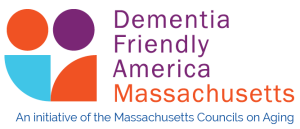When the local government of towns and cities recognize the value of becoming dementia friendly, their commitment to making their area more inclusive resonates throughout the community. The real change introduced by local government directly impacts people diagnosed with or indirectly affected by dementia. Government agencies can lead by example, supporting dementia-friendly progress throughout the region.
Cultural Competency
To become a truly inclusive community, knowing the residents is vital in identifying the needs of local people. Read your community profile here. Diverse groups of people are often invisible or underserved and require extra attention. Each culture regards and treats dementia differently, so be aware of who you are hoping to reach and understand how to communicate sensitively but effectively to bring about awareness and practical dementia-friendly actions.
Employee Training
One method to spread dementia-awareness is to train government employees so they can act in an informed and respectful way when assisting someone with dementia. Educated staff can spread the word about the dementia-friendly mission and help reduce the stigma around dementia by normalizing people living with the diagnosis.
Housing
Local government is vital in determining if the general area, as well as homes, are considered livable. Housing for older adults should be affordable, secure, and have access to dementia-friendly transit. Home modification services or other residential programs can allow adults with dementia to continue living in their home and be active members of the community.
Environment
Environmental changes in public spaces, such as additional street lighting and appropriate signage, are also factors that contribute to livability. Some dementia-friendly communities report that inclusive green spaces like parks and gardens are beneficial for people with dementia, autism, and other neurodiverse needs. Having welcoming, clean, safe, and accessible public areas contribute to the ability for an older person, particularly one with cognitive decline, to age-in-place.
Safety Systems
Safety systems such as disaster preparedness and voluntary public safety directories are ways in which local government can help protect the wellbeing of adults with cognitive impairment. Collaborating closely with residents, first responders, and hospitals local government can ensure that emergency plans are feasible for all parties involved.
Assistive Services
Local government agencies can offer assistive services, so people affected by dementia can make informed decisions about healthcare and other life choices. Social and family services can offer informational or training sessions such as the savvy caregiver, or financial classes to people with dementia and their care partners. Cultural services can identify the unique needs of diverse populations in the community and provide culturally informed resources. Libraries, senior centers, councils on aging, and other local government organizations and agencies can offer such services.
Neighborhood & Public Space
Alzheimer’s Western Australia- Dementia Friendly Signage
The Dementia Centre (UK)- Outdoor Spaces
OpenLearn- Designing Space for Dementia Care Course
Scotland’s First Dementia-Friendly Public Park
University of Wollongong (Aus)- Dementia Friendly Community- Environmental Assessment Tool Handbook
Housing
Home Modification Loan Program
Safety Systems & Disaster Preparation
Community Life

Recent Comments